Accessibility Options:
Hypatia of Alexandria
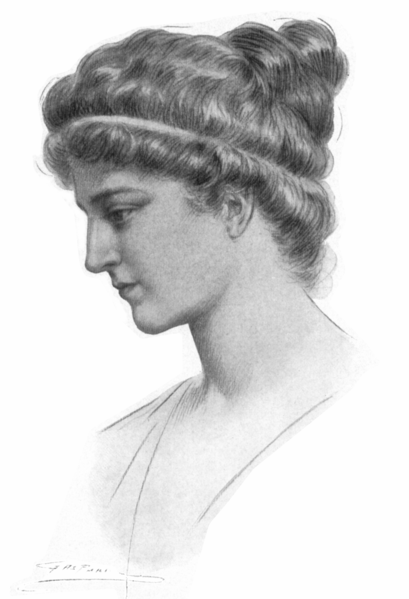
Hypatia of Alexandria
Date died: March 1, 415
Historical context/conditions for women living in that period: She was the only female scholar in ancient Egypt to become famous for her achievements, which shows that women were generally not encouraged to pursue academics.
Education: Her father was a member of the Museum of Alexandria, so he likely was her teacher, and she studied math and astronomy with him.
Career: She was a mathematician, and was ancient Egypt's only great female mathematician that we know of.
Major contributions: She invented mechanical devices including the plane astrolobe and graduated brass hydrometer, and taught at the Neoplatonic School where she was eventually was appointed director.
Notable moments in her life: She was stoned to death by Christians due to tensions between Pagans and Christians at the time, and was the only female scholar in ancient Egypt to become famous for her achievements.
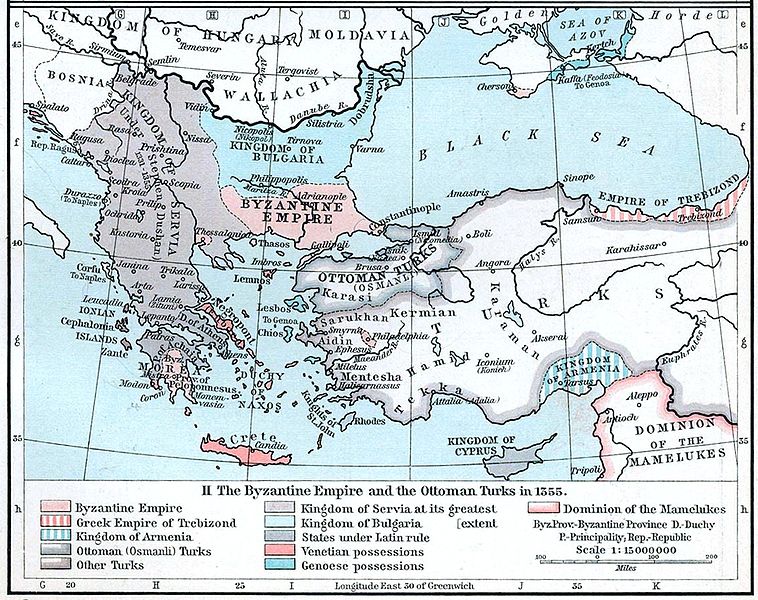
Anna Comnena
Date died: 1148
Historical context/conditions for women living in that period: Her education was fairly typical for women at her level of wealth and status. It was not uncommon for wealthy Byzantine women to be encouraged in their scholarly pursuits.
Education: It is possible that Comnena was formally educated at the medical school in Constantinople, as medicine was her main field of study. She was also well versed in astronomy, mathematics, and even music.
Career: She was a princess. It is also possibile that she may have practiced medicine and taught at the medical school in Constantinople.
Major contributions: While living in a convent after her husband’s death, she wrote extensively on the subjects of military technology, medical science, and even astronomy. The book she wrote about her father's reign, "The Alexiad" is still praised as an important work of medieval history.
Notable moments in her life: She conspired to steal the throne from her brother John after her father’s death, and was forced to leave court for her treasonous actions.
Heloïse
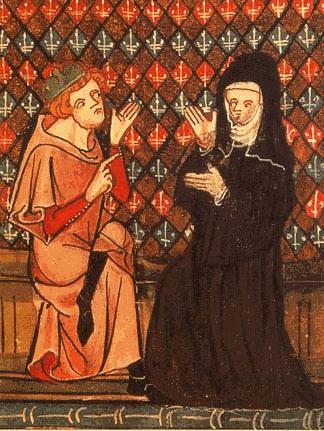
Heloïse
Date died: May 15, 1164? (the exact date is unknown)
Historical context/conditions for women living in that period: In Europe, women were not commonly educated at a high level. It was extremely uncommon for women to receive any formal education at all.
Education: She was educated by nuns at the convent of St. Marie near Paris. She became fluent in Latin, Greek, and Hebrew and was respected for her abilities in classical philosophy.
Career: She was an abbess.
Major contributions: Something that is very interesting about Heloïse is that her biographies focus on her scandalous relationship with Abelard-- although she was apparently very smart, she is not credited with any major contributions. Perhaps she had none, perhaps nuns weren’t looking for recognition for their work, or perhaps historians ignored it. Regardless of the reasoning, there are no specific scholarly achievements attributed to Heloïse.
Notable moments in her life: Despite her intelligence, she is most commonly remembered for her love affair with Abelard. Certainly for an abbess, a love affair is a notable scandal, but it is disappointing that her scholarly achievements are overlooked.
Marie de France

Marie de France
Date died: 1190
Historical context/conditions for women living in that period: In Europe during this time, only the very wealthy could afford to educate their children, and even in wealthy families the boys received much more advanced education than the girls.
Education: Very little is known about her life; all that is known is that she was born in France and likely lived in England, so her educational background is a mystery.
Career: She was a writer and poet.
Major contributions: 3 major works: the Lais, L’Ysopet, Espurgatoire Saint Patriz
Notable moments in her life: Very little is known about her life story. it is interesting to note that in de France's time, writers typically opted to remain anonymous, whereas she opted to claim credit for her work.
Christine de Pisan
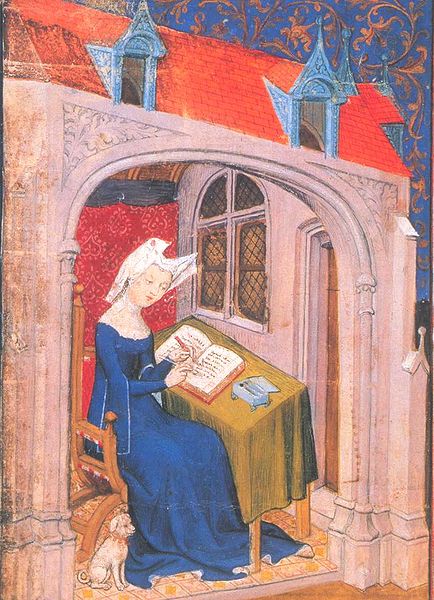
Christine de Pisan
Date died: 1431 (Poissy, France)
Historical context/conditions for women living in that period: Unless they were aristocratic or noble, most women were typically illiterate and had lower literacy rates compared to men across the board; de Pisan wanted these inequalities to change.
Education: She was educated by her father who was a scholar/astronomer.
Career: She was a writer.
Major contributions: She is the author of “The Book of the City of Ladies,” an allegorical work of political theory that makes a proto-feminist philosophical argument.
Notable moments in her life: She moved to a convent after the English defeated the French in a battle of the Hundred Years’ War and dedicated herself and her talents to help those who were less educated than herself.
Sources
"Anna Comnena." Notable Women Scientists. Gale, 2000. Biography in Context. Web. 23 Jan. 2016.
"Anna Comnena." Notable Women Scientists. Gale, 2000. Biography in Context. Web. 2 Apr. 2016.
"Heloise." Almanac of Famous People. Gale, 2011. Biography in Context. Web. 23 Jan. 2016.
"Héloïse." Encyclopedia of World Biography. Vol. 27. Detroit: Gale, 2007. Biography in Context. Web. 23 Jan. 2016.
"Marie de France." Feminist Writers. Ed. Pamela Kester-Shelton. Detroit: St. James Press, 1996. Biography in Context. Web. 23 Jan. 2016.
"Christine de Pisan." Feminist Writers. Ed. Pamela Kester-Shelton. Detroit: St. James Press, 1996.Biography in Context. Web. 23 Jan. 2016.
Wheat, E. M. (1999). "Now a new kingdom of femininity is begun": The political theory of christine de pizan's the book of the city of ladies. Women & Politics,20(4), 23-47. Retrieved from https://access.library.miami.edu/login?url=http://search.proquest.com/docview/213900515?accountid=14585
Links to sources of pictures:
Anna Comnene
Christine de Pisan
Hypatia
Heloise
Marie de France
Ada Lovelace
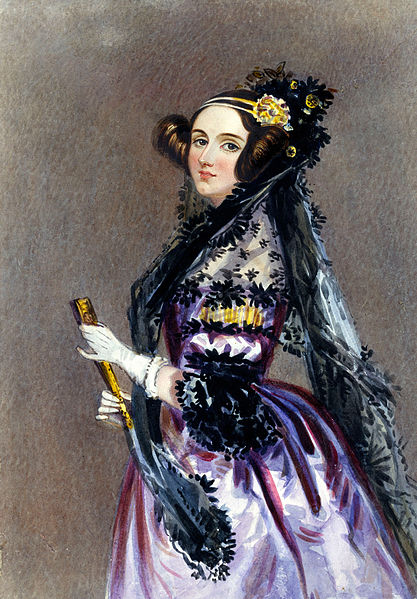
Ada Lovelace
Date died: November 27, 1852
Historical context/conditions for women living in that period: Ada’s formal education was unusual for wealthy girls such as herself in that era; formal education was typically reserved for boys, even in the upper classes.
Education: Her mother encouraged her formal education, which is why she received a much more advanced education than was typical for women in her time. Ada was tutored in math and science by Mary Somerville (who herself was the first woman member of the Royal Society). She was also tutored by mathematics professor Augustus de Morgan at the University of London, from whom she received a mathematics education at the same level that men were receiving from Cambridge
Career: She was the Countess of Lovelace, and a mathematician.
Major contributions: She has been credited with writing the first computer program, and worked with Charles Babbage on his Analytical Engine, which was a precursor to the modern computer.
Notable moments in her life: Although she has been credited with writing the first computer program, there were (and still are) some people who deny that she did the work herself.
Lise Meitner
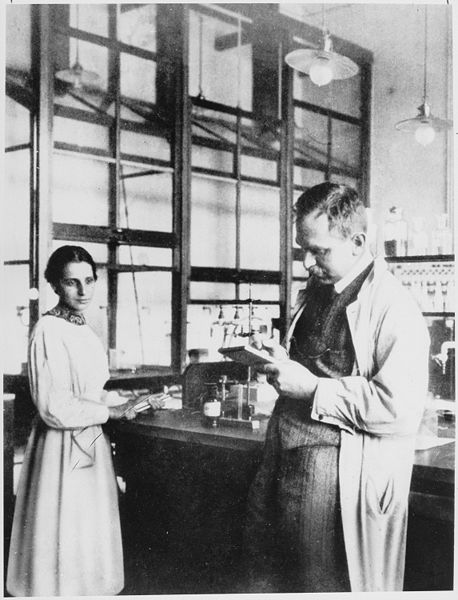
Lise Meitner
Date died: October 27, 1968 (Cambridge, UK)
Historical context/conditions for women living in that period: Women in Meitner's time were expected to forgo a career in favor of being a wife and mother. She was the "prototypical female scientist" for her time because she gave up the possibility of a family in order to pursue her scientific work.
Education: At her father's wishes, she attended the Elevated High School for Girls in Vienna. Her diploma there would allow her to teach French, and he thought that was a better career choice for a woman than pursuing math and science. Afterwards, she became one of the only women students at the University of Vienna.
Career: She was a physicist; right after earning her PhD she stayed at the University of Vienna as an assistant to a professor’s assistant, which was vast underemployment for someone with her level of education. Unfortunately, it was her only job offer at the time, likely due to gender-based discrimination. She eventually left that position to work with famous physicist Max Planck.
Major contributions: She worked on the theory of nuclear fission, which is the technology that made the atomic bomb possible.
Notable moments in her life: As the first woman professor in Germany, she experienced severe descrimination and was refused publication because many journals felt it was beneath them to publish the work of a woman. She was also forced to work in a makeshift lab in Berlin’s Chemical Institute, rather than getting an actual lab.
Grace Hopper
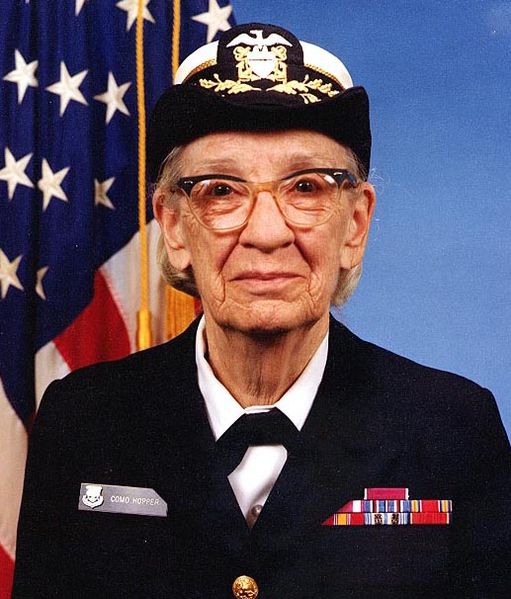
Grace Hopper
Date died: January 1, 1992 (Virginia, USA)
Historical context/conditions for women living in that period: When Hopper was a teenager, women won the right to vote. It was not until Hopper was in her 60s that gender-based employment discrimination was outlawed, so for most of her life she had to fight against that.
Education: She attended Vassar as an undergraduate, and earned her Masters and PhD from Yale.
Career: She was a computer scientist, and also had the longest active military career.
Major contributions: In addition to having the longest active military career, she became a rear admiral when she was 82 and received the National Medal of Technology in 1991.
Notable moments in her life: In addition to her admirable military achievements, a fun fact is that Grace was actually the person to coin the term "bug" or "de-bugging" in reference to computers. In her situation, she had to remove an actual bug from a computer, though!
Chien-Shiung Wu
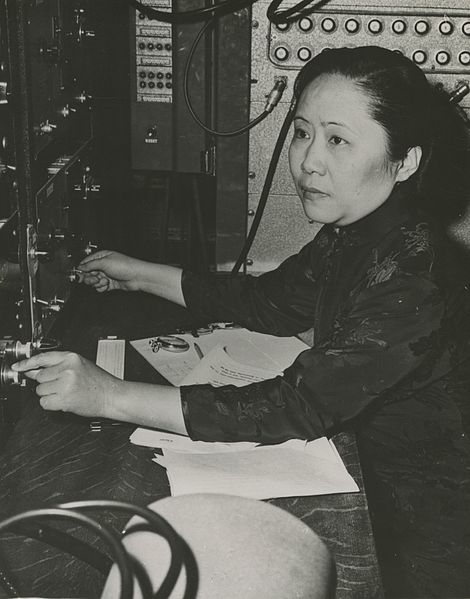
Chien-Shiung Wu
Date died: February 16, 1997 (New York, USA)
Historical context/conditions for women living in that period: During her early years, the women's suffrage movement was under way in the United States. Although Wu may have had the right to vote, her employment opportunities were grim compared to those of her fellow male scientists.
Education: She was encouraged to excel in school by her parents, both of whom really valued education. Her mother was a tutor and her father established a school for girls.
She attended her father’s school for elementary school, then attended a teacher training program where she used other students' books and notes to teach herself math and science. She then attended the National Central University in Nanjing as a physics major, after which she earned her doctorate at UC Berkeley. As a graduate student, she was able to study under renowned faculty such Robert Oppenheimer, who is famous for his involvement in the Manhattan Project.
Career: She was a physicist.
Major contributions: She was part of the team of physicists that worked on creating the first atomic bomb during the second World War.
Notable moments in her life: Especially in the early part of her career, Wu faced sexism which prevented her from being adequately rewarded for her work. For example, her graduate work at Berkeley should have earned her a teaching position, but she did not receive one due to the fact that there were no positions available to women at the time.
Hedy Lamarr

Hedy Lamarr
Date died: January 19, 2000 (Orlando FL, USA)
Historical context/conditions for women living in that period: So much advancement for women's rights and opportunities occured during Lamarr's lifetime. When she was born, women in the United States could not even vote. When she died, not only had women won that right, but rights to equal pay and employment opportunities as well.
Education: She attended a finishing school in Swintzerland.
Career: She was a famous movie actor, but many people do not know that she was also an inventor.
Major contributions: She was the co-inventor of frequncy shifting; the idea was Lamarr's but George Antheil helped. Frequency shifting is a way of sending out radio signals in parts in order to prevent them from being intercepted. This technology was the pre-cursor of the wireless technology used in modern cell phones.
Notable moments in her life: Lamarr and Antheil’s patent on frequency shifting expired before it was rediscovered independently and used in for military communications. It was first used during the Cuban Missile Crisis. Although she invented the technology, due to her expired patent she never received any financial compensation for the idea.
Rosalind Franklin

Rosalind Franklin
Date died: April 16, 1958 (London, UK)
Historical context/conditions for women living in that period: A career choice of science at the time meant giving up marriage and a family
Education: She attended St. Paul’s Girls’ School in London, then moved on to Cambridge for both her undergrad and PhD.
Career: She was a physical chemist.
Major contributions: She established the crystallographic basis for the structure of DNA.
Notable moments in her life: She was not given due acknowledgment for her work regarding the structure of DNA, fellow scientists Watson and Crick received the credit.
Marie Maynard Daly
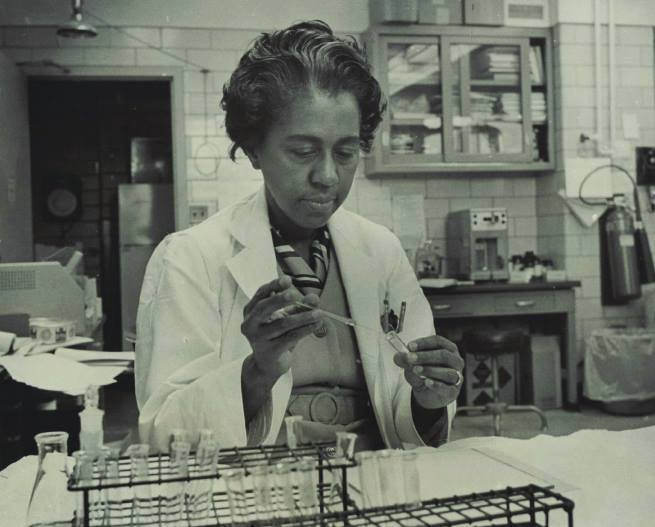
Marie Maynard Daly
Date died: October 28, 2003
Historical context/conditions for women living in that period: In her time, it was still pretty uncommon for women, especially women of color, to have the education level and career that Daly did. Although she was born after women had finally won the right to vote, the Civil Rights and Feminist Movements which would have helped her have more fair employment opportunities did not take off until she was in her 40s.
Education: She went to undergrad at Queens College, completed her Masters at NYU, and earned her PhD from Columbia.
Career: She was a professor.
Major contributions: Her research contributed to our knowledge of the causes of both heart attacks and lung disease.
Notable moments in her life: She was the first African-American woman to earn a PhD in Chemistry.
Flossie Wong-Staal
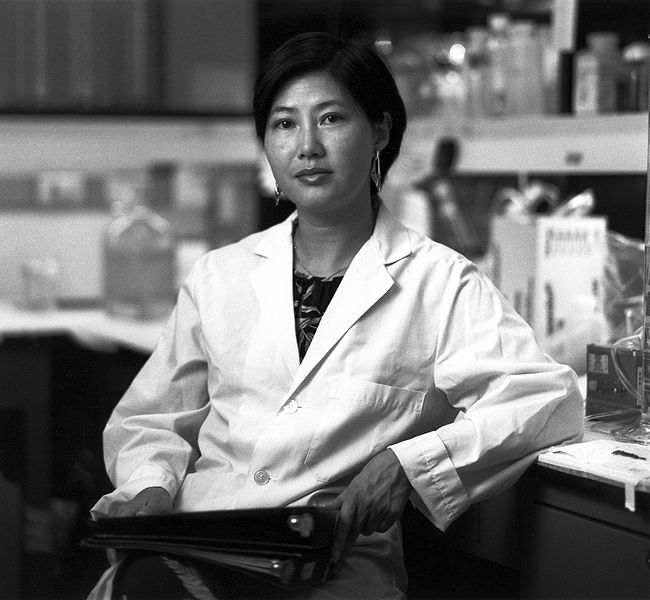
Flossie Wong-Staal
Date died: N/A
Historical context/conditions for women living in that period: better than the past for sure; she attended college during the civil rights and womens lib movements and likely benefitted from the legislature passed around that time. Her high school teachers actually encouraged her to study the sciences, unlike many previous women who were told not to do so.
Education: She attended UCLA for undergrad where she was a molecular biology major. She went on to grad school at UCLA where she was a research assistant in bacteriology.
Career: She is a virologist.
Major contributions: She is working towards finding a cure for AIDS and is an extremely well-resepected AIDS researcher.
Notable moments in her life: She is still working towards finding a vaccine for HIV and a cure for AIDS, but in 1990 she was named "top woman scientist of the previous decade" by the Institue of Scientific information. Additionally, she was the first woman in her family to attend college.
Sources
Global: Some lovelace inspiration for women in science. (2015, Jun 15). Women's Feature Service Retrieved from https://access.library.miami.edu/login?url=http://search.proquest.com/docview/1691297000?accountid=14585
Shortt, D. M. (1998). Gender and technology: Looking to the past. Canadian Woman Studies, 17(4), 89. Retrieved from https://access.library.miami.edu/login?url=http://search.proquest.com/docview/217455090?accountid=14585
"Lise Meitner." Encyclopedia of World Biography. Detroit: Gale, 1998. Biography in Context. Web. 23 Jan. 2016.
"Grace Hopper." Encyclopedia of World Biography. Detroit: Gale, 1998. Biography in Context. Web. 23 Jan. 2016.
Edge, L. (1999, Dec 30). With a little derring-do. New Moon, 7, 28. Retrieved from https://access.library.miami.edu/login?url=http://search.proquest.com/docview/194787182?accountid=14585
"Chien-Shiung Wu." Encyclopedia of World Biography. Vol. 19. Detroit: Gale, 1999.Biography in Context. Web. 23 Jan. 2016.
"Hedy Lamarr." World of Invention. Gale, 2006. Biography in Context. Web. 23 Jan. 2016.
"Hedy Lamarr." Encyclopedia of World Biography. Vol. 27. Detroit: Gale, 2007.Biography in Context. Web. 23 Jan. 2016.
Hold the phone: This lady is an inventor. (1997). Dawn, (18), 14. Retrieved from https://access.library.miami.edu/login?url=http://search.proquest.com/docview/230458872?accountid=14585
"Rosalind Elsie Franklin." Encyclopedia of World Biography. Detroit: Gale, 1998.Biography in Context. Web. 23 Jan. 2016.
"Marie Maynard Daly." Contemporary Black Biography. Vol. 37. Detroit: Gale, 2003.Biography in Context. Web. 23 Jan. 2016.
"Flossie Wong-Staal." Notable Asian Americans. Ed. Helen Zia and Susan B. Gall. Detroit: Gale, 1995. Biography in Context. Web. 23 Jan. 2016.
"Flossie Wong-Staal." World of Health. Gale, 2006. Biography in Context. Web. 2 Apr. 2016.
Links to sources of pictures:
Ada Lovelace
Lise Meitner
Grace Hopper
Chien-Shiung Wu
Hedy Lamarr
Rosalind Franklin
Marie Maynard Daly
Flossie Wong-Staal
About Me & My Project

Abigail Johnson
Library Research Fellow
Graduated class of 2017
Hi everyone,
My name is Abbey Johnson and I graduated UM in 2017. I majored in philosophy, history, and psychology, so my goals for this project were to highlight a few women throughout history who have made great scholarly contributions but been undervalued for them, as well as to write a short introduction to feminist philosophy of science to help get people thinking about why women have been and continue to be underrepresented in the scientific community.
Useful Resources
"PhilPapers is a comprehensive directory of online academic philosophy." - from PhilPapers.org
Gender Watch
GenderWatch indexes and provides the full-text of articles in 175 publications that focus on the impact of gender across a broad spectrum of subject areas. GenderWatch contains archival material, in some cases as far back as the 1970's with additional archival material continually added, making this the repository of historical perspective on the evolution of the women's movement and the changes in gender roles and understandings over the last fifteen to twenty years.
Gale In Context: Biography
Gale In Context: Biography is an engaging online experience for those seeking contextual information on the world's most influential people. Biography merges Gale's authoritative reference content with periodicals and multimedia organized into a user-friendly portal experience while allowing users to search for people based on name, occupation, nationality, ethnicity, birth/death dates and places, or gender as well as keyword and full text.
Search UM's Library Catalog
Read the Article!
Tips for Using Resources
A Really Short Introduction to Feminist Philosophy of Science
By Abigail Johnson, Graduate Class of 2017
Library Research Scholars Program
When you think of famous scientists, people like Isaac Newton, Albert Einstein, and Charles Darwin probably come to mind. It is likely that very few of the scientists you think of are women. Is this because women don’t contribute to science as much as men do, or is it because the scientific community fails to recognize the achievements of women scientists?
Additionally, STEM fields are often applauded for being the ultimate examples of non-biased objectivity that many other fields look up to and wish to associate with. But, if the STEM fields wish to truly live up to their goals of neutrality and objectivity, they need to start by rethinking who they are allowing to participate in research—sexism and racism are not compatible with social impartiality.
For example, think of Hedy Lamarr. She is typically remembered for her acting career and being beautiful, but almost no one knows she was an inventor as well. She actually invented the technology that was used for military communication during the Cuban Missile Crisis years later, but this contribution is typically overshadowed by her acting career.
Another famous woman who was essentially not credited for her extensive scientific research and important discoveries is Rosalind Franklin. She contributed to the discovery of the double-helix structure of DNA, but typically only James Watson and Francis Crick are credited with the discovery.
“If women are systematically excluded from the design and management of science and their work devalued, then it appears that neither the assignment of status to persons within science nor the assessment of the value of the results of inquiry is, or is intended to be, value-neutral, objective, socially impartial.” So if social biases are allowed to interfere with women’s ability to participate in scientific research, and that almost certainly appears to be the case, science cannot claim to be as objective as it strives to be.
Additionally, it appears that second-wave feminism was not entirely successful in obtaining gender equality, since sociologist Hilary Rose says, “such racializing and gendering of science was not confined to the eighteenth and nineteenth centuries but is present today, despite the ideological claims of the neutrality of science.”
Feminist philosophy of science offers explanations regarding both why women have been historically excluded from STEM fields as well as support for the claim that women are an invaluable part of the scientific process.
Historians such as Ruth Watts have acknowledged that since ancient times “there had been a few examples of renowned female teachers and writers and medical practitioners,” but women that were able to succeed in their respective fields were few and far between. Perhaps that was due to social biases against women, but there is also the possibility that so few women are remembered or honored for their contributions because men are the ones judging whether or not something is worthy of being remembered or honored. Since “women’s contributions to traditional history and culture have still been contributions to what men, from the perspective of their lives, think of as history and culture,” one cannot help but wonder how many of women’s scholarly contributions have been erased throughout history because they were deemed insignificant or the women unqualified.
Surprisingly, the rise of modern science did little to help women’s opportunities in scientific fields. It actually appears that it worked to their disadvantage, seeing as “there were many different ‘scientific’ explanations of life and gender competing for attention in the mid-seventeenth century, but gradually, a stress on women’s passive nature and intellectual capacities seemed to dominate.”
Rather than modern science opening the door for women to pursue academics, women have continued to be marginalized in the scientific community. “Marginality resulted, in part, from several strongly felt values held by Europeans and Americans in the last half of the nineteenth century: specifically that women belonged in the home; that women were innately incapable of creative work; that women should not “usurp” the traditional male role as the head of the family.” Although this quote only addresses the marginality that women are facing in modern science, this phenomenon has been present throughout history as well.
If we as a society can figure out a way to support women’s potential as scientists and be more inclusive of women in STEM, it will not only improve the status of women, but the quality of science as well.
Abigail Johnson was part of the inaugural cohort of the Library Research Scholars Program with a focus on historical research of women scientists. The Women in STEM SubjectsPlus guide created by Abigail is now available on the UML website. Visit the guide for more examples and resources on this topic.
"Hedy Lamarr." World of Invention. Gale, 2006. Biography in Context. Web. 23 Jan. 2016.
"Rosalind Elsie Franklin." Encyclopedia of World Biography. Detroit: Gale, 1998.Biography in Context. Web. 23 Jan. 2016.
Sandra Harding, The Science Question in Feminism (United States of America: Cornell University, 1986), 67.
Hilary Rose, Love, Power and Knowledge: Towards a Feminist Translation of the Sciences (Indiana: Indiana University Press, 1994), 17.
Ruth Watts, Women in Science: A Social and Cultural History (New York: Routledge, 2007), 34.
Sandra Harding, The Science Question in Feminism, 31.
Ruth Watts, Women in Science: A Social and Cultural History, 45.
Jonathan Cole, Fair Science: Women within the Scientific Community (New York: The Free Press, 1979), 189.
Contact Information
Subject Specialist
-
-
Abigail Johnson
Library Research Fellow